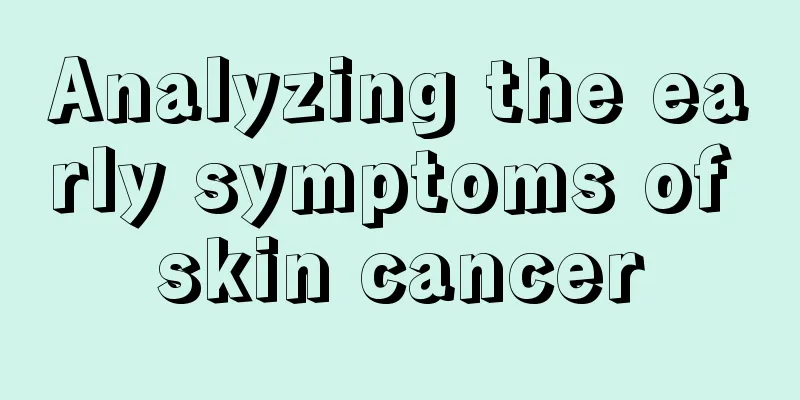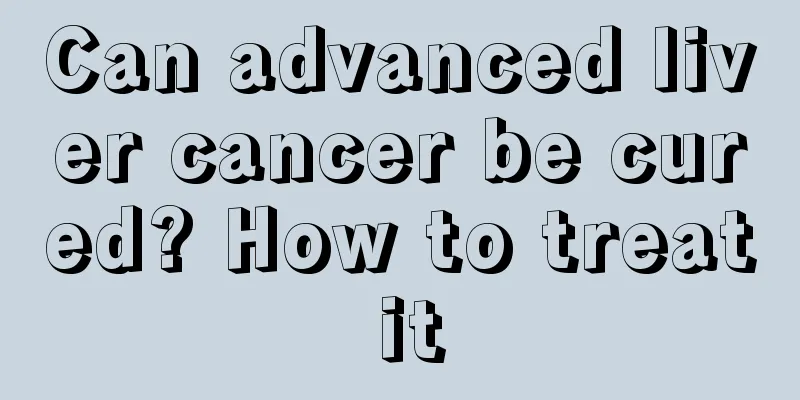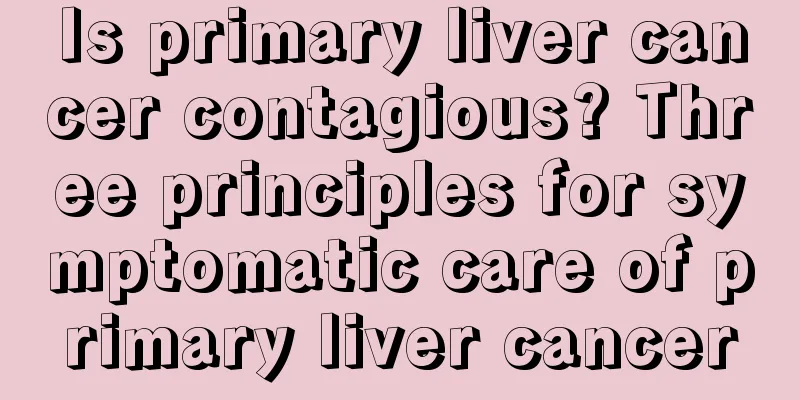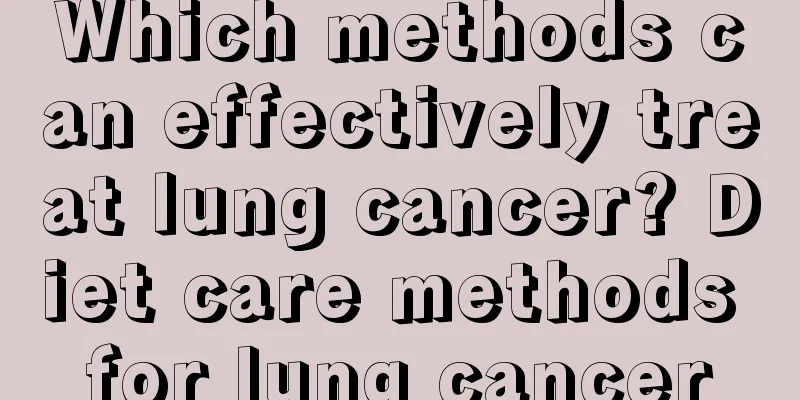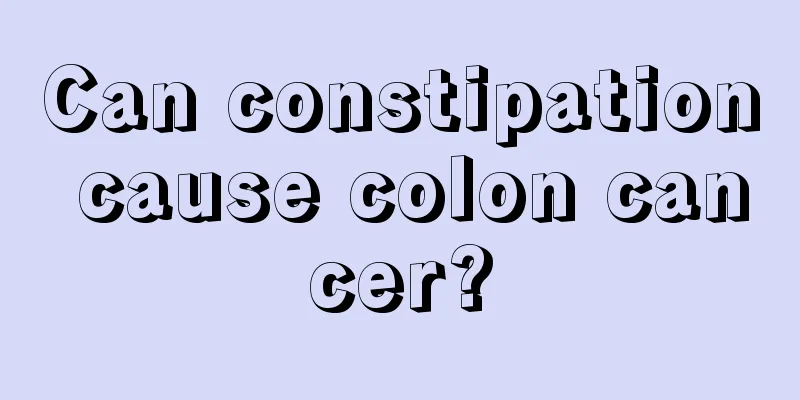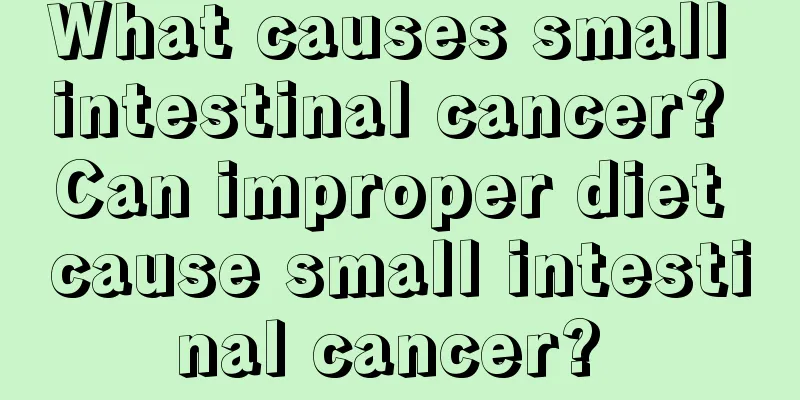What is the reason for chest congestion after meals
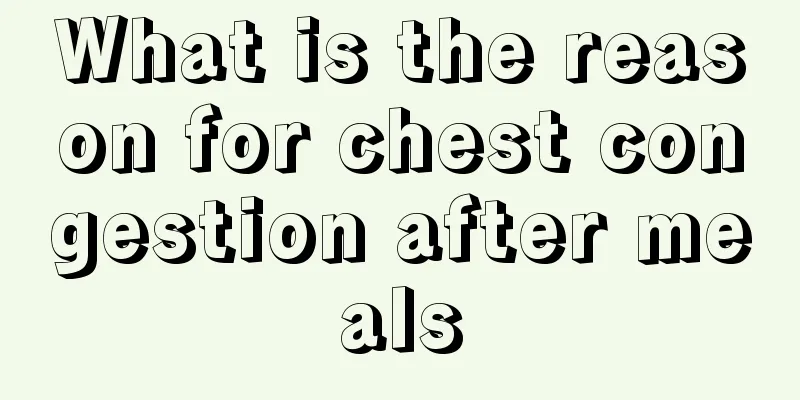
|
Chest congestion means that there are some problems in our body. For example, shortness of breath and arrhythmia may be caused by chest congestion. Chest congestion may be caused by various reasons, and it may occur in different situations, including chest congestion after meals. This is caused by certain reasons. So what is the reason for chest congestion after meals? Feeling bloated after meals or all day long, belching but no acid reflux, poor appetite, gradual weight loss, and slightly pale or gray complexion are symptoms of chronic gastritis, especially chronic atrophic gastritis and gastroptosis, in middle-aged and elderly people. When eating, there is a feeling of obstruction, pause, and pain behind the sternum, which may be mild or severe. This often suggests that the patient may have esophagitis, esophageal diverticulum or early esophageal cancer. If you experience heartburn, belching, and pain behind the sternum after a meal (which is more obvious when lying flat, bending forward, or when abdominal pressure increases), gastroesophageal reflux disease should be considered. Upper abdominal pain after meals, or nausea, vomiting, or a feeling of indigestion. Symptoms persist for many years, often occurring in autumn. The pain may be rhythmic, such as after catching a cold, getting angry, or eating irritating foods. This may be a gastric ulcer. Stomach pain often occurs 2 hours after a meal, or wakes you up in the middle of the night, and is relieved after eating. Acid reflux is common. There may be duodenal ulcer or inflammation. If you experience abdominal distension and pain after meals, often with nausea, vomiting, and occasionally vomiting of blood, a history of stomach problems that have recently worsened, or no history of stomach problems that have only recently developed, and are accompanied by anemia, weight loss, loss of appetite, and a hard lump felt above the navel or heart, then you may be suffering from stomach cancer. Abdominal pain and diarrhea after eating improperly or catching a cold may be accompanied by vomiting, chills and fever, which may be acute gastroenteritis or acute dysentery. Diarrhea occurs immediately after a meal, after each meal, if you catch a cold or eat improperly, sometimes you have diarrhea and sometimes you have constipation. The diarrhea is watery, and there is a lot of mucus when you are constipated. Sometimes you have bloating and want to have a bowel movement but cannot defecate when you go to the toilet. You have not lost weight for several years, then you are likely to have chronic allergic enteritis. Eating spicy, greasy, or cold food, drinking alcohol, or having diarrhea right after a meal may cause diarrhea. Some people may have abdominal pain and intestinal rumbling during or before diarrhea, and the abdominal pain will be relieved after diarrhea. This may be due to intestinal dysfunction. |
<<: Complications after stoma reversal
>>: I woke up with a sore neck and couldn't move. What's going on?
Recommend
How to take better care of hamartoma
For ordinary people, because they do not understa...
Steps to burn the tooth nerve
Toothache is not a serious disease, but many peop...
What's wrong with pimples on the scalp in winter?
The weather is relatively dry in winter, and the ...
How to wash hair with vitamin E
Vitamin E is a common vitamin in life. Vitamin E ...
How to diagnose liver cancer in its early stages? Analysis of markers for early diagnosis of liver cancer
Experts told reporters that an ideal liver cancer...
Medicine that reduces fever quickly
In real life, fever is a very common physical dis...
Can esophageal cancer be cured
Esophageal cancer is a relatively serious intesti...
Soaking your feet in white vinegar to treat Achilles tendinitis
Achilles tendonitis is a sterile inflammation, an...
What is the difference between Leihuo moxibustion and moxibustion?
Leihuojiu is a treatment method that combines mul...
Can I do scraping at night
We all know that scraping is a physical therapy m...
Which bad eating habits can lead to lung cancer? 4 eating habits that can easily lead to lung cancer should be changed
Although our country's medical technology has...
Is interventional treatment for lung cancer painful?
Is interventional treatment for lung cancer painf...
What are the methods for detecting clenbuterol
Clenbuterol was originally used to treat bronchia...
Is toothpaste effective for toothache
We often hear or see in advertisements that a cer...
Is Glycated Hemoglobin the same as blood sugar? The difference between glycosylated hemoglobin and blood sugar
Blood sugar refers to the monosaccharide in the b...
